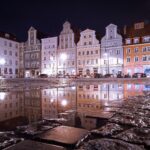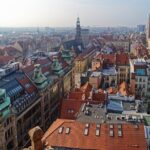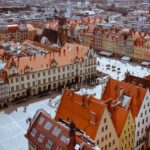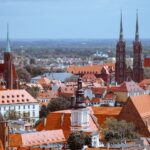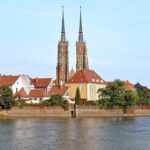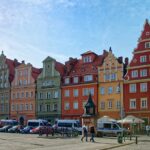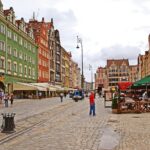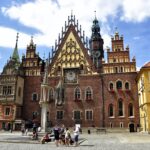Wrocław
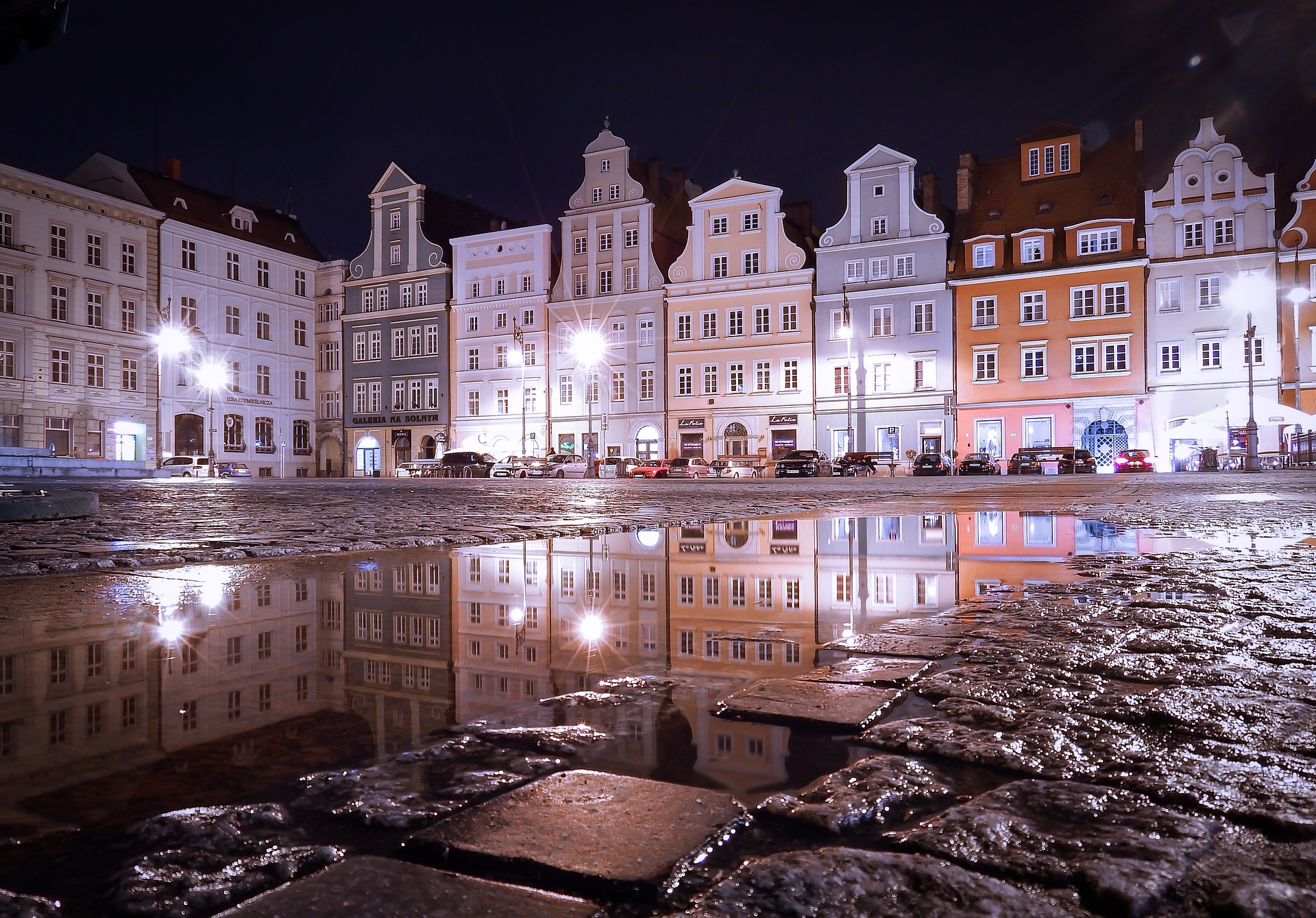
Wrocław is a city in western Poland and the largest city in the historical region of Silesia. It lies on the banks of the River Oder in the Silesian Lowlands of Central Europe, roughly 350 kilometres (220 mi) from the Baltic Sea to the north and 40 kilometres (25 mi) from the Sudeten Mountains to the south. The population of Wrocław in 2017 was 638,364, making it the fourth-largest city in Poland and the main city of Wrocław agglomeration.
Wrocław is the historical capital of Silesia and Lower Silesia. Today, it is the capital of the Lower Silesian Voivodeship. The history of the city dates back over a thousand years, and its extensive heritage combines almost all religions and cultures of Europe. At various times, it has been part of the Kingdom of Poland, Kingdom of Bohemia, Kingdom of Hungary, Habsburg Monarchy, Kingdom of Prussia, German Empire, Weimar Republic and Nazi Germany. Wrocław became part of Poland again in 1945, as a result of the border changes after the Second World War, which included a nearly complete exchange of population.
Wrocław is a university city with a student population of over 130,000, making it one of the most youthful cities in the country.Since the beginning of the 20th century, the University of Wrocław, previously Breslau University, produced 9 Nobel Prize laureates and is renowned for its high quality of teaching.
Wrocław is classified as a Gamma- global city by GaWC. It was placed among the top 100 cities in the world for the quality of life by the consulting company Mercer.
The city hosted the Eucharistic Congress in 1997 and the Euro 2012 football championships. In 2016, the city was a European Capital of Culture and the World Book Capital. Also in this year, Wrocław hosted the Theatre Olympics, World Bridge Games and the European Film Awards. In 2017, the city was the host of the IFLA Annual Conference and the World Games.
More information: https://en.wikipedia.org/wiki/Wroc%C5%82aw



